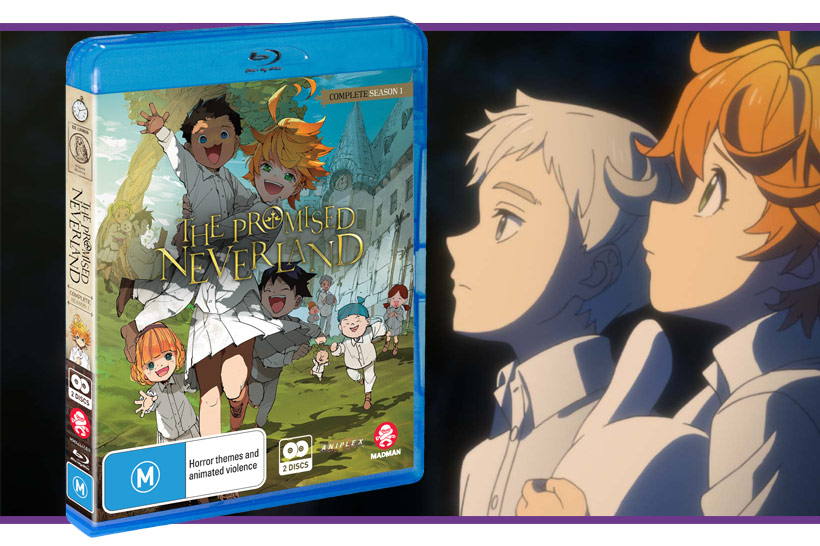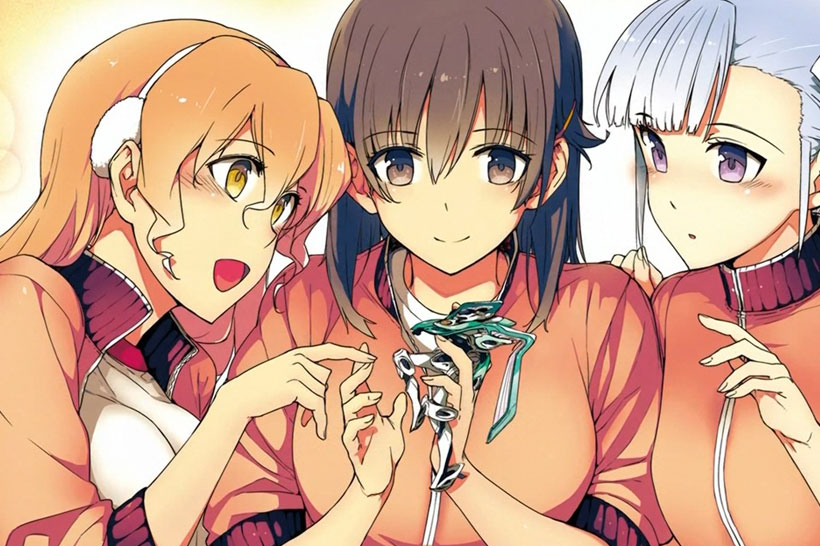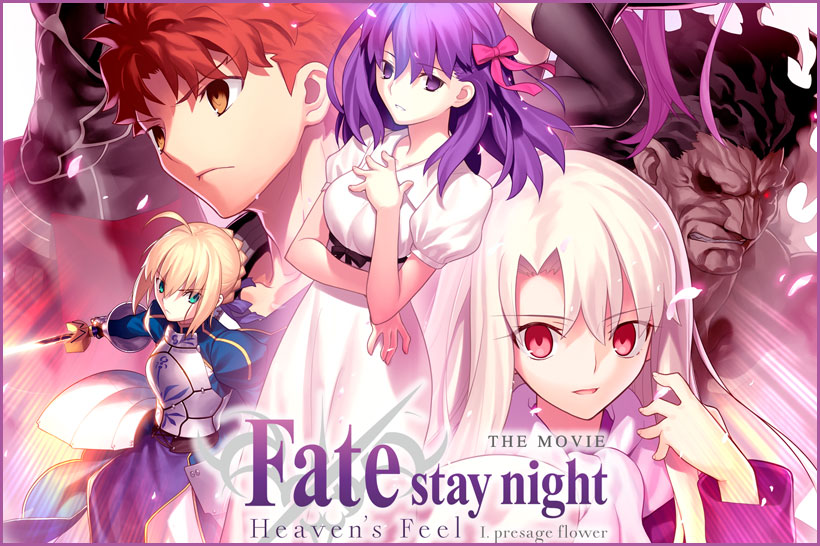Known as the Clan of the Separated by outsiders, the Iolph are figures of legend who maintain youthful appearances and live for hundreds of years. They spend their days weaving hibiol, a cloth that records their stories and the passage of time, remembering the days when the world was filled with legends like flowers that sung and tribes of people with wings that have long since passed. A young Iolph girl named Maquia lives alongside her people in this manner until the day her town is attacked by the Kingdom of Mezarte, who capture her people for their own means and force her to flee from her home. Alone and desperate, Maquia comes across an orphaned baby whose family was similarly taken from him and chooses to raise him as her own. But as Maquia learns to navigate her new world and keep her Iolph identity under-wraps, terrible truths come to light as she discovers the plight of her people and what it means to love those whose lifespans will never match your own.
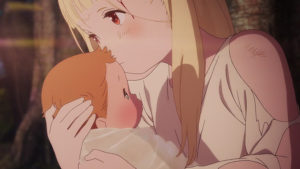
Maquia: When the Promised Flower Blooms is screenwriter Mari Okada’s (Black Butler, Anohana: The Flower We Saw That Day, Mobile Suit Gundam: Iron-Blooded Orphans, etc.) directorial debut, with an original anime film that questions, provokes and weaves a tale of trauma, displacement and unconditional love. Impressively, the film does all of this in a tale that spans decades and is set in a world that feels like it was plucked out of an established and much beloved fantasy series with its legends, politics and economy all intact. The multiple time skips used in the film are also genuinely effective and interesting; there’s an opportunity to see time pass and how Maquia and her relationships with her adopted son Ariel change over the years, and it really emphasises how little the passage of time affects the Iolph while giving the film space to explore those scenarios in a short amount of time. Additionally, this passage of time adds extra drama to the stories of characters like Leilia and Krim, Maquia’s childhood friends, who experience their own struggles throughout the film that intensify with the passage of time. Leilia’s is perhaps the most awful, having been taken captive by the Mezarte royal family, isolated, and forced to wed the prince to produce immortal heirs for the kingdom. This decades’ long perspective really benefits the film and its characters, as we get to see both them and the world they live in change, and the reactions of both parties to these changes. It’s something that makes Maquia: When the Promised Flower Blooms stand out from other films and feel really special.

Impressively, the fantasy elements in Maquia: When the Promised Flower Blooms have thematic purpose and meaning; the figures of legend in the film like the youthful Iolph and the dragon-like Renato are fantasy creatures but they are foremost beings that are used, abused and imprisoned for their abilities by the Kingdom of Mezarte to increase its influence and power. The Renato are used like steeds by Mezarte soldiers, and although they were once a symbol of power their numbers have begun to dwindle due to a mysterious disease known as ‘red-eye’ which causes the creatures to go on a violent rampage before their inevitable deaths. Although they play a somewhat peripheral role in the film, I am focusing on the Renato because they are an example of the excellent script and direction of Maquia: When the Promised Flower Blooms. They mirror the plight of the Iolph as the last of the world’s legends, forced into cruel circumstance that eventually result in their grief and despair burning away so intensely that it literally warps and destroys them. It is a common dilemma in the film, with Krim desperately seeking out Leilia to free her whatever the cost and Maquia’s own anxieties about her role as a mother. Most poignant of these is Lelia’s story, who like the Renato is trapped in the Mezarte castle, theorising the cause of the red-eye affliction as she herself sinks into despair. Okada and her team don’t approach these issues half-heartedly – while unconditional love between mother and child is definitely a focus of the film, Maquia: When the Promised Flower Blooms also explores what it means to destroy a community and carve up their culture and civilisation for power. The exploration by the film on what kind of toll this has on the people involved was what struck me most and speaks to the sheer amount of care that went into the film’s creation and exploration of themes.
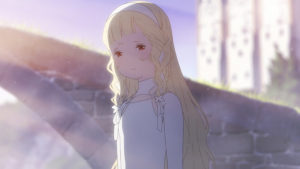
While I enjoyed Maquia: When the Promised Flower Blooms, there are certain lines of dialogue and character beats that did not work for me. Some lines in this film honestly sink like a rock in a still pond, particularly anything from Ariel about wanting to protect Maquia and become ‘like a father’ to her, which really does not work given that the entire first half of the film features Maquia competently raising a child while also learning how to navigate an unfamiliar environment and hold down a job. Having grown up with Maquia as his mother it is strange that Ariel of all people would think to treat her that way, and while it by no means ruins the film, that and the way he treats her while he is a teenager is off-putting. The third act of the film is also the most divisive. While I personally really enjoyed how the ending brought everyone’s stories together, and could spark some interesting conversations, I acknowledge how the actions and decisions of some characters might not be as well received. I will also mention that the lack of special features is a real shame, as this Blu-Ray release only comes with the standard featurette and trailers rather than anything you can really sink your teeth into like interviews or concept art. That being said, despite these very, very minor issues, it is easy for me to forgive the few shortcomings of Maquia: When the Promised Flower Blooms because it invites contemplation and is so distinct from any other films I have seen in the last few years it’s hard not to make a place for it in your heart.
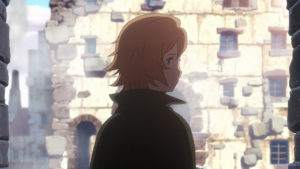
Maquia: When the Promised Flower Blooms feels like a small story that only scratches the surface of a much larger world. This assessment is not a frustration – it is a small but incredibly impactful tale set in a world of such proportions that has you itching for further details. Maquia: When the Promised Flower Blooms is an excellent directorial debut from Okada, and her team have exhibited immense skill in the creation of a film that juggles complex themes, time skips and fantasy elements while still delivering a solid story. Fans of Okada, animation, and storytelling owe it to themselves to get a copy as soon as possible and experience it for themselves.
A review copy was provided by Madman Entertainment to the author for the purpose of this review.
© PROJECT MAQUIA



